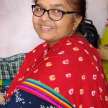
The way in which differences between singular and plural are shown grammatically is called Number.
In this way, there are two kinds of Number:-
1. Singular Number
2. Plural Number
1. Singular Number - It suggests that a thing or a person is only one in
number.
Example :- boy, girl, city, cow, book, etc.
2. Plural Number :- It suggests that a thing or a person is more than one in
number.
Example :- boys, girls, cities, cows, books, etc.
Uncountable Nouns are always Singular and they are used only in singular sense or singular number.
A Countable Noun is Singular by nature in its original form. It can be changed into Plural by following some certain rules.
RULES OF CHANGING FROM SINGULAR TO PLURAL NUMBER :-
1. Generally, a singular Countable Noun is changed into Plural by adding 's' at its end.
Examples:-
Singular Plural Singular Plural
bag bags ball balls
book books tree trees
girl girls sister sisters
day days pencil pencils
2. If a singular noun ends with s, x, sh, ss, ch or z, it is made plural by adding 'es' at its end.
Examples:-
Singular Plural Singular Plural
gas gases bus buses
box boxes tax taxes
bench benches dish dishes
class classes glass glasses
N.B.:- But, if a singular noun ends with 'ch' and it is pronounced 'k', it is made plural by adding 's' to it.
Example :- monarch - monarchs
3. If a singular noun ends with 'y' and a vowel letter comes before this 'y', it is made plural by adding 's' at its end.
Examples:-
Singular Plural Singular Plural
boy boys key keys
way ways monkey monkeys
4. If a singular noun ends with 'y' and a consonant letter comes before this 'y', it is made plural by changing 'y' into 'I' and then adding 'es' to it.
Examples:-
Singular Plural Singular Plural
baby babies lady ladies
country countries army armies
family families fly flies
5. If a singular noun ends with 'o' and a vowel letter comes before 'o', it is made plural by adding 's' to it.
Examples:-
Singular Plural Singular Plural
folio folios cuckoo cuckoos
bamboo bamboos
6. If a singular noun ends with 'o' and a consonant letter comes before 'o', it is made plural by adding 'es' to it.
Examples:-
Singular Plural Singular Plural
hero heroes potato potatoes
mango mangoes volcano volcanoes
Exceptions:- photo - photos , piano- pianos,
folio - folios, etc.
7. If a singular noun ends with 'f/fe', it is made plural by changing 'f/fe' into 'v' and then adding 'es' to it.
Examples:-
Singular Plural Singular Plural
wolf wolves calf calves
life lives knife knives
wife wives loaf loaves
thief thieves leaf leaves
Exceptions:-
Singular Plural Singular Plural
chief chiefs belief beliefs
roof roofs strife strifes
proof proofs mischief mischiefs
cliff cliffs gulf gulfs
8. Some singular nouns are made plural by changing the internal vowel letters.
Examples:-
Singular Plural Singular Plural
man men woman women
foot feet goose geese
mouse mice tooth teeth
9. Some singular nouns are made plural by adding 'en' to it
Examples:- ox - oxen, child - children.
10. In Compound nouns, main words are made plural.
Examples:-
Singular Plural
brother-in-law brothers-in-law
passer- by passers-by
maid servant maid servants
postman postmen
stepson stepsons
pickpocket pickpockets
son-in-law sons-in-law
11. Some compound nouns are made plural by making plural of both the nouns.
Examples:-
Singular Plural
manservant menservants
woman servant women servants
12. Some nouns remain the same in both the singular and plural forms.
Examples:-
Singular Plural Singular Plural
deer deer sheep sheep
pice pice
13. Some nouns look to be plural as they end with 's', but they are always used in singular sense.
Examples:- mathematicians, politics, Physics, news, gallows, summons, etc.
14. Some nouns ending with 's' are always plural.
Examples:- alms, ashes, auspices, bowels, measles, riches, tidings, scissors, cards, scales, thanks, etc.
15. Some Collective Nouns look to be singular, but they are always used as plural.
Examples:- cattle, folk, gentry, mankind, people, peasantry, police, public, vermin, cavalry, infantry, etc.
N.B. :- 'peoples' means nation or tribe.
16. Some nouns are always singular.
Examples:- furniture, information, advice, alphabet, machinery, poetry, scenery, issue, offspring, expenditure, etc.
17. Some nouns have two plural forms with two different meanings.
Examples:-
Brother- brothers - sons of the same parents.
- brethren- people of the same tribe.
Cloth- cloths - pieces of cloth.
- clothes- dress.
18. Plural of some foreign words:-
Singular Plural Singular Plural
axis axes agendum agenda
datum data medium media
basis bases criterion criteria
oasis oases radius radii thesis theses
appendix appendices
analysis analyses
hypothesis hypotheses
parenthesis parentheses
phenomenon phenomena
About the Creator
Nira Kumari
Hello wonderful Readers, I'm a school teacher passionate for writing. This year I turned 55, and have started my long life dream of becoming a Writer.






Comments
There are no comments for this story
Be the first to respond and start the conversation.